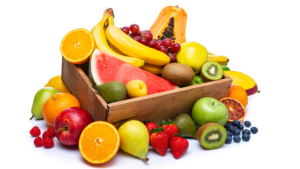In today's hectic world, cardiovascular health often suffers due to convenience-driven choices. The prevalence of processed foods, sedentary habits, and persistent stress contribute significantly to the rising rates of cardiovascular diseases. Globally, these diseases, including heart attacks and strokes, remain a leading cause of mortality. The World Health Organization (WHO) estimates that in 2019, approximately 17.9 million deaths were attributed to cardiovascular diseases, representing 32% of all global deaths. Heart attacks and strokes alone accounted for 85% of these fatalities.
While many believe that specialized diets or medications are the key to a healthy heart, everyday lifestyle choices have a far greater impact. If you prefer modern medicine, here are five tips that can make a difference.

Ghee, or clarified butter, is not the villain it's often made out to be. When consumed in moderation, especially in its pure, homemade form, ghee provides saturated fats and fat-soluble vitamins A, D, E, and K. These nutrients aid digestion and support heart health by promoting antioxidant absorption and maintaining arterial flexibility. Don't shy away from ghee; use it wisely as part of a balanced diet.
Healthy fats are essential for hormone and cell function, and crucially, for a healthy heart. Nuts like cashews and coconuts, along with their oils, contain vital fatty acids, magnesium, and antioxidants. These components help lower bad cholesterol (LDL) and increase good cholesterol (HDL), thereby protecting against heart disease. Making informed dietary choices can be the key to a vibrant heart.

It’s time to overhaul your kitchen. Packaged foods often contain trans fats, excessive sodium, and artificial additives, all of which are detrimental to heart health. These substances contribute to plaque buildup in arteries, elevate blood pressure, and trigger inflammation. Replacing packaged snacks with whole foods like fruits, seeds, and nuts is a simple yet effective way to protect your heart.
Even moderate alcohol intake can strain the cardiovascular system. Alcohol can elevate blood pressure, disrupt normal heart rhythms, and contribute to weight gain and liver stress, potentially weakening the heart over time. Reducing or abstaining from alcohol is a decision your future self will appreciate, as health risks arise even from the first sip.

While cardiovascular exercise is often seen as the primary way to maintain heart health, strength training is equally important. Weightlifting and resistance exercises improve circulation, lower resting blood pressure, and increase overall muscle mass, which boosts metabolic health. Complement your workouts with a balanced diet rich in vegetables, fruits, whole grains, and healthy fats. A stronger body leads to a healthier heart.
Disclaimer: This article is for informational purposes only and does not substitute professional medical advice. Always consult with a healthcare provider before making significant lifestyle changes.
Newer articles
Older articles
 SA20 Teams Given Six Retention Options Ahead of Season 4 Auction
SA20 Teams Given Six Retention Options Ahead of Season 4 Auction
 Gavaskar Calls for Kuldeep Yadav's Inclusion in Second Test Amid Bumrah Fitness Concerns
Gavaskar Calls for Kuldeep Yadav's Inclusion in Second Test Amid Bumrah Fitness Concerns
 Former Selector Blasts India's Fielding Errors After Test Defeat to England
Former Selector Blasts India's Fielding Errors After Test Defeat to England
 Rishabh Pant is 'Reinventing' Cricket, Says Greg Chappell, Following Heroic Test Display
Rishabh Pant is 'Reinventing' Cricket, Says Greg Chappell, Following Heroic Test Display
 5 Daily Practices That Radiate Confidence
5 Daily Practices That Radiate Confidence
 Test Your Focus: Spot the Hidden Word in This Optical Illusion Challenge
Test Your Focus: Spot the Hidden Word in This Optical Illusion Challenge
 Messi, 38, Recreates "Ankara Messi" Magic with Stunning Solo Goal for Inter Miami
Messi, 38, Recreates "Ankara Messi" Magic with Stunning Solo Goal for Inter Miami
 Expert Dismisses Claim That Eating Fruit on Empty Stomach Raises Diabetes Risk
Expert Dismisses Claim That Eating Fruit on Empty Stomach Raises Diabetes Risk
 Nine-Year-Old Indian Chess Prodigy Holds Magnus Carlsen to Draw in Online Tournament
Nine-Year-Old Indian Chess Prodigy Holds Magnus Carlsen to Draw in Online Tournament
 Mirabai Chanu Reveals Relentless Demands of Weightlifting: Training, Weight Control Consume Mind Even During Family Time
Mirabai Chanu Reveals Relentless Demands of Weightlifting: Training, Weight Control Consume Mind Even During Family Time